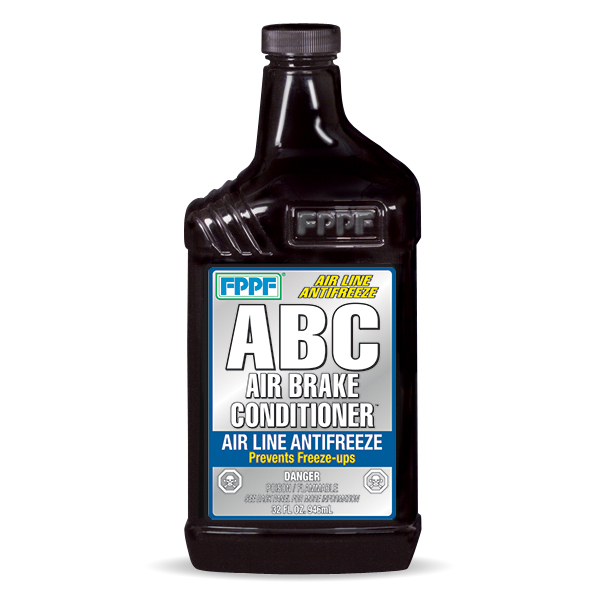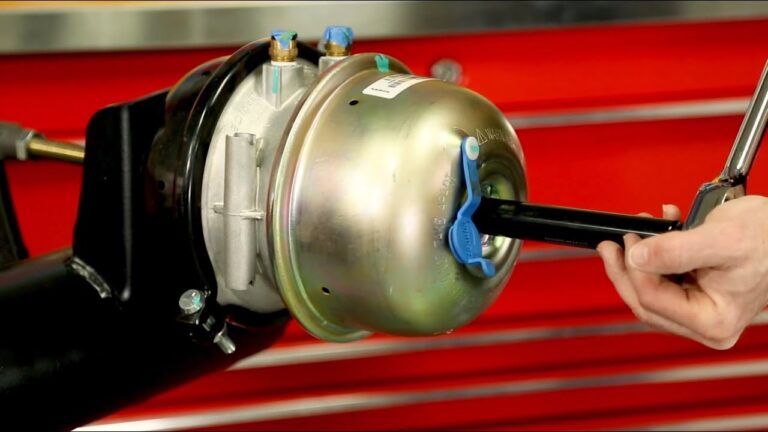
To use air brake antifreeze, fill the alcohol evaporator jar two-thirds full with CRC Air Brake Anti-Freeze. When the compressor is operating, ensure bubbles pass through the antifreeze, and ensure all connections are tight and in good condition.
Air brake antifreeze is critical for maintaining a truck’s air brake system. As temperatures drop, moisture can accumulate and freeze in the air lines, causing potential brake failure. By using air brake antifreeze, you can prevent this issue and ensure the proper functioning of the air brake system.
In this guide, you will learn the essential steps for effectively using air brake antifreeze to maintain the integrity and safety of your truck’s air brake system. So, let’s dive into the details of how to use air brake antifreeze to safeguard your truck’s braking efficiency during freezing temperatures.

Credit: fppf.com
Navigate As You Want:
Importance Of Air Brake Antifreeze
Air brake antifreeze is essential to prevent freezing in air brake systems. To use, fill the alcohol evaporator jar with CRC Air Brake Anti-Freeze and ensure bubbles are passing through when the compressor is running. Regular maintenance with this antifreeze helps maintain optimal function.
Critical Maintenance For Trucks
Air brake antifreeze plays a crucial role in maintaining the performance and reliability of trucks, especially during the winter months. Its primary function is to prevent freezing and moisture build-up in the air brake system, which can lead to malfunctioning brakes and unsafe driving conditions.
To prevent freezing and moisture build-up, it is important to drain the air tanks daily to remove accumulated moisture. This helps lower the risk of freezing and ensures optimal brake performance. Additionally, adding air brake antifreeze is a maintenance task that you can easily tackle.
| Steps to add air brake antifreeze: |
|---|
| 1. Fill the alcohol evaporator jar approximately two-thirds full with CRC Air Brake Anti-Freeze. |
| 2. Ensure that the compressor is operating and observe bubbles passing through the Air Brake Anti-Freeze. |
| 3. Check all connections and ensure they are tight and in good condition. |
Remember, it is important to use the proper air brake antifreeze and avoid using alcohol, as it can dry out the seals in the air valves. Taking these preventive measures will help protect your truck’s air brake system and ensure safe and reliable driving even in harsh winter weather conditions.
Proper Application Of Air Brake Antifreeze
When using air brake antifreeze, it is important to know where to add it. Typically, it should be added to the alcohol evaporator jar, filling it approximately two-thirds full. It is crucial to ensure that all connections are tight and in good condition to prevent any leaks.
Additionally, the frequency of adding antifreeze is essential. It is recommended to add air brake antifreeze regularly to prevent moisture build-up, especially in the winter months. This helps in lowering the risk of air lines and tanks freezing, which can lead to potential operational issues.
Best Practices For Air Brake Antifreeze
Proper maintenance of air brakes involves draining air tanks regularly to remove accumulated moisture, especially during the winter months. This helps prevent freezing and ensures the smooth operation of the system. Additionally, it is crucial to avoid using incorrect substitutes such as alcohol as it can dry out the seals in the air valves, leading to potential issues. Instead, utilizing the appropriate air brake antifreeze is essential for maintaining the integrity and functionality of the air brake system.
Safety Measures When Handling Air Brake Antifreeze
When handling air brake antifreeze, it is important to take safety measures to protect yourself. After use, washing your hands thoroughly with soap and water is necessary to remove any residue or potential contaminants. Moreover, you should avoid contact with your eyes or skin, as air brake antifreeze can be irritating. It is crucial to handle the antifreeze with care to avoid any adverse effects.
Comparing Different Air Brake Antifreeze Products
Comparing different air brake antifreeze products is essential for ensuring proper maintenance of your truck’s air brake system. Learn how to use air brake antifreeze correctly to prevent freezing and protect your brakes in winter weather. It’s important to add the appropriate amount of antifreeze and regularly check your air tanks for moisture buildup.
| CRC Air Brake Antifreeze | Penray Air Brake Antifreeze | Substitute Products Available |
| Fill alcohol evaporator jar about two-thirds full with CRC Air Brake Anti-Freeze. | Adding air brake antifreeze is a maintenance task you can perform easily. | Used to drain the air, take out the plug and pour a little in the tank. |
| When compressor is running, bubbles should pass through Air Brake Anti-Freeze. | Ensure all connections are tight and in good condition. | Remove a fitting and gently pour one to two capfuls of air brake antifreeze into your air tank. |
| Never use alcohol as it can dry out the seals in the air valves. |

Credit: www.amazon.com

Credit: www.youtube.com
Frequently Asked Questions Of How To Use Air Brake Antifreeze
Where Do You Add Air Brake Antifreeze?
To add air brake antifreeze, fill the alcohol evaporator jar two-thirds full with CRC Air Brake Anti-Freeze. Ensure connections are tight, and when the compressor is operating, bubbles should pass through the antifreeze. It’s a key maintenance task to prevent freezing.
What Does Air Brake Antifreeze Do?
Air brake antifreeze prevents air brake systems from freezing by absorbing moisture and preventing ice formation.
How Do I Keep My Truck Air Lines From Freezing?
To keep your truck air lines from freezing, drain your air tanks daily to remove moisture that can accumulate and cause freezing. Make sure to tighten all connections and ensure they are in good condition. Additionally, you can consider adding air brake antifreeze to your air tank.
Avoid using alcohol, as it can dry out the seals in the air valves.
How Do You Winterize Air Brakes?
To winterize air brakes, fill alcohol evaporator jar with CRC Air Brake Anti-Freeze. Check all connections and ensure they are tight.
Conclusion
In order to properly maintain your truck’s air brake system, it is crucial to understand how to use air brake antifreeze. By following the simple steps outlined in this blog post, you can easily tackle this maintenance job yourself. Remember to use the proper air brake antifreeze and ensure all connections are tight and in good condition.
By taking these measures, you can protect your air brake system from freezing and ensure optimal performance during winter months. Don’t forget to regularly add air brake antifreeze to your air tank for maximum effectiveness.




